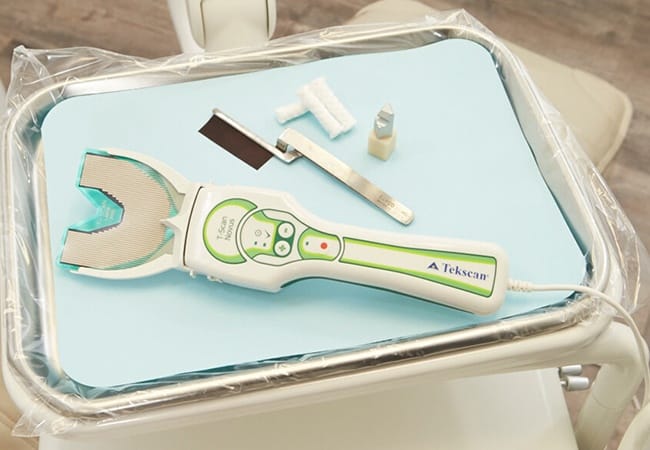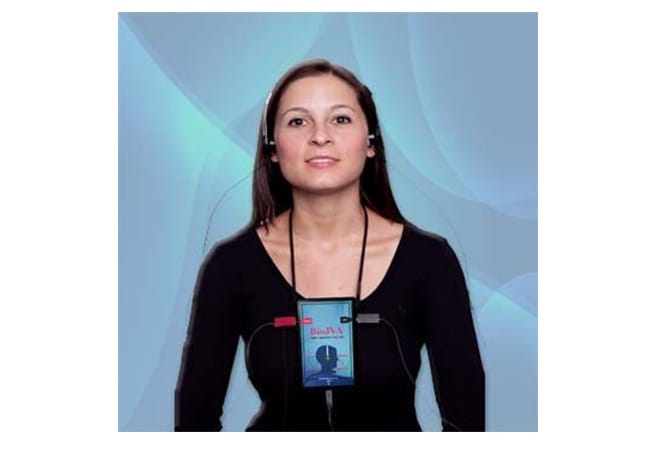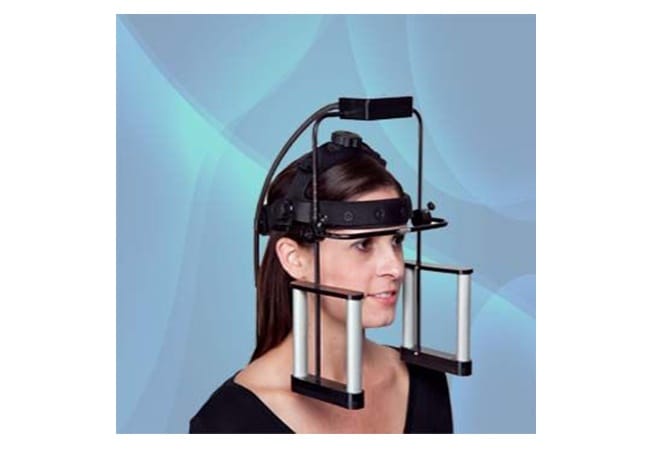TMJ/TMD Treatment – Pittsburgh, PA
Stop Your Chronic Jaw & Head Pain
Millions of Americans are dealing with constant jaw pain and chronic headaches, and many have no clue that it’s stemming from a strained or injured temporomandibular joint, or TMJ. This is the joint that connects the jaw to the skull, and problems with the muscles, bones, or ligaments can lead to a TMJ disorder, or TMD. At Warwick Dentistry, both of our dentists are able to get to the root cause of TMJ issues and provide therapies designed to relieve pain and improve jaw function at the same time. Give us a call today to learn more and schedule a consultation to discuss TMJ/TMD treatment in Pittsburgh, PA.
Why Choose Warwick Dentistry for TMJ/TMD Treatment?
- Both Dentists are Trained in Neuromuscular Dentistry
- Custom-Splints Relieve Jaw Pain & Stop Teeth Grinding
- State-of-the-Art Technology Guarantees Great Results
Diagnosis & Treatment

A TMD can have many causes, but some of the most common include:
- Unconscious teeth grinding during sleep (bruxism)
- Missing teeth that cause a misaligned bite
- An injury to the joint
- Arthritis
Each of these places stress on the TMJ which can lead to muscle tension and pain that radiates throughout the face, head, and neck. Our team will use X-rays to examine the joint directly and determine what is causing a patient’s problem. From there, the appropriate treatment can be recommended.
TekScan Bite Analysis

When diagnosing a bite problem, it’s important to identify any imbalances that are placing excessive pressure on certain teeth. Our dental office uses Tekscan technology, which comes in the form of a handheld device that the patient can bite down. This creates highly detailed digital readings of their biting force along the entire mouth, making it easy to pinpoint dysfunctional areas and formulate a highly personalized treatment plan.
Joint Vibration Analysis

If you’re struggling with TMJ disorder, our team may recommend undergoing Joint Vibration Analysis. Jaw joint vibration occurs when the cartilage disc that cushions the TMJ becomes caught between the jawbone as the mouth opens and closes. This is what causes the constant clicking and popping noises you hear throughout the day. For the analysis process, we will use a device that looks like headphones to pick up vibrations and also pinpoint their severity, which will help with planning future treatment. It only takes minutes!
Jaw Tracker

The JT-3D (also known as a “Jaw Tracker”) is another important diagnostic tool for analyzing jaw movement in a new, dynamic way. The device rests on the patient’s head and captures very precise measurements without even causing uncomfortable contact with the nose, eyes, or mouth. We’ll be able to better understand what happens when the patient chews, speaks, and swallows, as well as what their overall range of motion is like.
NTI-TSS Splints

This is a special type of mouthguard we would have a patient wear to bed if we determine that they grind their teeth while they sleep. Obvious signs of this include TMJ pain, flattened teeth, or a scalloped tongue (which is a pattern left on the tongue made by the teeth pressing against it). The NTI-TSS splint fits over the teeth and places a barrier between them so they can’t grind together, and it also shifts the jaw into a more relaxed position, relieving muscle tension, which should cause any jaw pain or headaches to eventually go away.
TMJ Therapy FAQs
If you are interested in TMJ Therapy in Pittsburgh, congratulations on taking the next step! But before you jump in, Drs. Joyce and John Warwick understand you probably have many questions about what to expect. Treating chronic jaw pain requires finding the right solution to treat the underlying cause of your TMJ properly and successfully. This is why we’ve compiled some common questions asked by our patients who have received beneficial TMJ Therapy. If you have any additional questions or concerns after reviewing the following information, do not hesitate to contact our office to schedule an appointment.
If my jaw pops when opening or closing my mouth, does this mean I have TMJ?
Most likely, yes. Although it cannot be fully determined until you see Dr. Joyce or Dr. Jack for a consultation, popping joints is one of the clear indicators that TMJ may be present. It’s not necessarily uncommon for jaw joints to pop or click now and then; however, if this occurs alongside the development of headaches or increasing pain throughout the jaw, it is in your best interest to seek the help of a dentist who can examine your oral structure and determine if you have TMJ.
Can appropriate therapy eliminate my frequent migraines?
It is possible that with the right treatment, you will notice a decline in the frequency of your migraines, especially since these jaw joints are connected to the skull. However, it is not guaranteed, nor can you expect to never experience another migraine again.
Will I need to wear a splint for the rest of my life?
How long you will need to wear your splint is ultimately up to your dentist in Pittsburgh. The severity of your case will determine the length of time you will need to wear your customized oral device. In most cases, you should not expect to have to wear a splint for more than 6 months; however, this is largely based on the severity of your TMJ as well as if you will be directed to wear it only at night or throughout the day as well.
What changes can I make to alleviate the symptoms of TMJ?
If you want to be more proactive about treating your chronic jaw pain, there are things you can avoid doing that will only serve to benefit your jaw and facial muscles. These include:
- Limiting the amount of gum you chew on a regular basis
- Yawning too widely
- Eating ice
- Chewing on pens, pencils, or other inanimate objects
- Maintaining poor posture
- Resting your chin on your hand
Is treatment covered by insurance?
Because TMJ/TMD Therapy is considered neuromuscular dentistry, it is most often not covered by dental insurance. However, the only way to know for sure is by contacting a member of your insurance company to find out. Even if they are unable to provide adequate coverage, you may want to check with your medical insurance provider. But even if you receive no financial help from either your dental or health insurance companies, you can apply for flexible financing through CareCredit. We are pleased to work closely with this third-party company that provides low and no interest payment plans.

